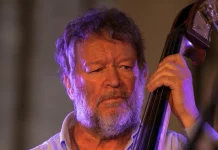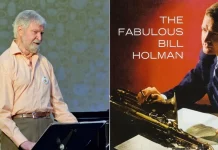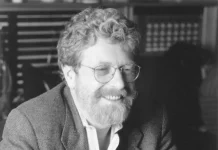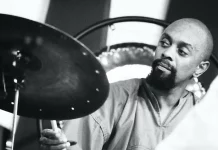For once, the term “towering reputation” has a literal basis. Randy Weston stood six feet five, but was as lithe in movement as he was at the keyboard. One of the great thinkers of jazz and a custodian of its African-American roots, he ought to have been more widely regarded. Of all the great themes he wrote and performed, only the joyous Hi-Fly seems to have made it into the repertory. Weston had many mentors on piano – Count Basie, Duke Ellington, Earl Hines, Art Tatum and his cousin Wynton Kelly – but they all paled into insignificance compared to Thelonious Monk, with whom he took lessons and maintained a relation that was part friendship, part discipleship and, one gathered between the lines, part protector.
Randolph Edward Weston was born 6 April 1926 (same day as the Rev Ian Paisley; who says there’s nothing to astrology?), the son of a Brooklyn restaurateur who drilled into the boy the politics of Marcus Garvey and the African origins of America’s black population. It would be some time before that particular lesson surfaced. He had taken piano lessons while at school, but his birthdate meant that the draft was unavoidable. Weston spent 30 months in the army, with a period stationed at Okinawa. He spent as long as a conscript in Monk’s inner circle, driving him round New York, learning, as he put it, “just from the way he walked”.
Weston found New York oppressive, and the drug scene unhealthy, so he moved to rural Massachusetts, near Lenox, and fell in with the jazz historian Marshall Stearns, who reinforced Weston Sr’s views of jazz’s Ur-story. It wasn’t until the early 1960s that he made an actual visit to the continent. By then Weston had begun recording, with bassists Sam Gill and Ahmed Abdul-Malik and drummers Art Blakey, Al Dreares, Wilbert Hogan, sadly neglected early sides that stand up strongly even now.
After visiting Africa, though, his music changed, but not in a sudden, revelatory way. It is as if he recognised the African elements that had always been there. Solo recordings such as African Nite (Owl), Nuit Africaine (Enja) and Ancient Future/Blue (Mutable) are remotely reminiscent of Abdullah Ibrahim, but closer in spirit to 52nd Street. A Verve contract saw him pushed into a self-conscious “world jazz” phase that didn’t always reflect his natural gift, but now and again on Khepera (1998), he seemed in contact with his younger self, on themes such as Anu Anu and The Shrine. They and the peerless Little Niles are among his greatest gifts to jazz writing, but perhaps the rhetorical question answers itself. Nobody ever made these tunes sound as good as Weston did himself. He worked through his 70s with the African Rhythms Trio, recording powerfully even into old age, which found him vibrant and unbent and enjoying an association with younger players like Talib Kibwe (T. K. Blue). His work with the Gnaoua Masters of Marrakech is on a par at very least with anything Ornette Coleman did.
Randy Weston died 1 September 2018, with four generations in the family legacy. His autobiography African Rhythms (2010) isn’t just a personal story. It’s an important contribution to the understanding of African-American music.
























